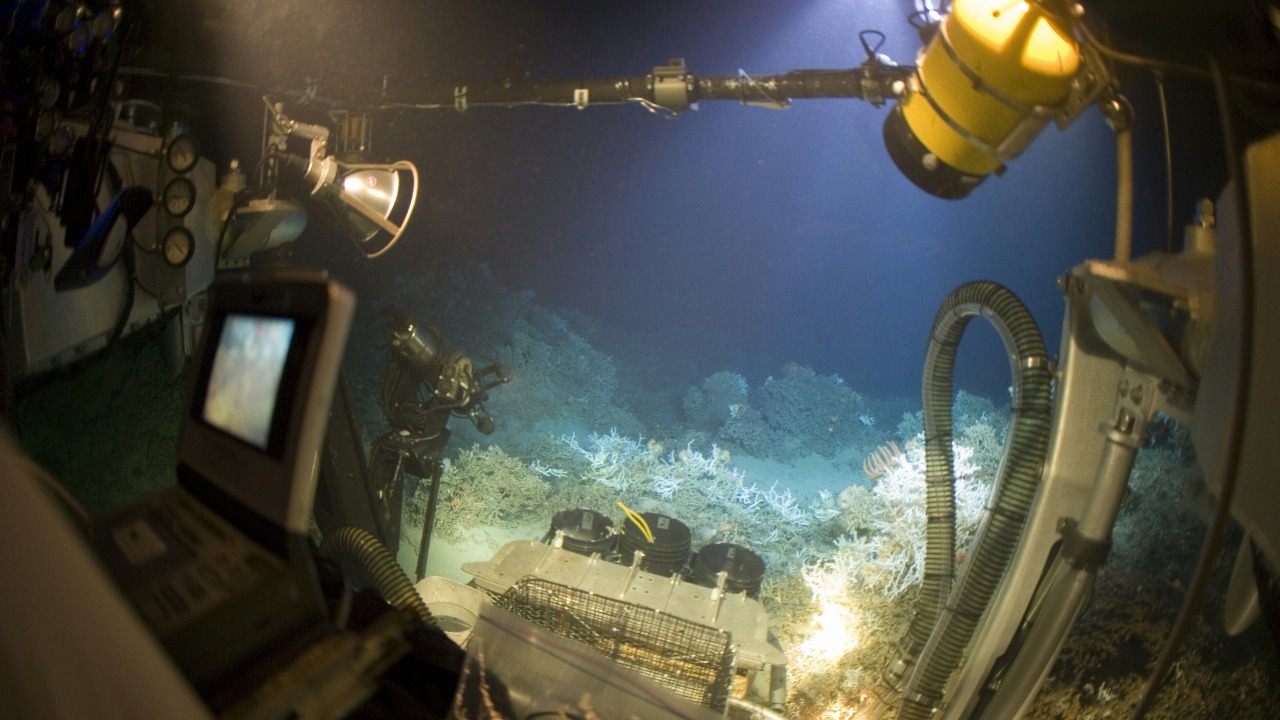
Deep-sea mining operations could potentially disrupt marine ecosystems by releasing nutrient-poor sediments that essentially turn plankton’s natural diet into the equivalent of junk food. This concern arises from recent studies examining how mining plumes might smother beneficial organic matter while dispersing inorganic particles that offer little nutritional value to microscopic life forms. As exploration ramps up in regions like the Clarion-Clipperton Zone, scientists warn of cascading effects on global biodiversity.
Understanding Deep-Sea Mining
Deep-sea mining is the process of extracting polymetallic nodules from the ocean floor at depths exceeding 4,000 meters. This process involves the use of equipment like collector vehicles that disturb seafloor sediments. The target minerals of these operations include manganese, nickel, and cobalt, which play a crucial role in technologies like electric vehicle batteries.
Regulatory bodies such as the International Seabed Authority oversee these operations. Currently, several exploration licenses are held by companies operating in international waters. The potential environmental impact of these operations is a growing concern among scientists and environmentalists.
The Role of Plankton in Ocean Ecosystems
Plankton are primary producers that form the base of the marine food chain. They convert sunlight and nutrients into energy for higher trophic levels. Phytoplankton and zooplankton contribute significantly to carbon sequestration and oxygen production, supporting fisheries that feed billions of people worldwide.
However, plankton communities are vulnerable to environmental changes, such as sedimentation from human activities. Changes in their environment can have far-reaching effects on the entire marine ecosystem.
Sediment Plumes from Mining Operations
Mining operations disturb fine sediments, creating plumes that can spread over hundreds of kilometers and reach surface waters. These plumes consist of inorganic particles that lack organic carbon, which is essential for plankton growth. Modeling studies have shown that these plumes persist and mix vertically in the water column, potentially affecting marine life at various depths.
Nutritional Impacts on Plankton
The sediments released by mining operations are high in minerals but low in bioavailable organics, similar to junk food. This could reduce plankton’s energy intake and growth rates. Lab experiments simulating plume exposure have shown that diatoms and other phytoplankton exhibit inhibited photosynthesis when exposed to these sediments.
There is also a concern that these conditions could lead to shifts in plankton species composition toward less nutritious types, affecting herbivores like copepods. This could have a ripple effect on the entire marine food chain.
Cascading Effects on Marine Food Webs
Changes in plankton diets could lead to malnourished fish and marine mammals higher up the food chain. Evidence from analogous disturbances, like trawling, has shown that such changes can have significant impacts on benthic ecosystems. This could have broader implications for commercial fisheries in areas adjacent to mining zones, particularly in the Pacific.
Mitigation Strategies and Research Gaps
Several mitigation strategies have been proposed to minimize the environmental impact of deep-sea mining. These include the development of low-impact collectors to minimize sediment disturbance. Ongoing monitoring efforts by organizations like the Seabed 2030 project aim to map deep-sea biodiversity and track the effects of mining operations.
However, there is a need for long-term field studies on the effects of plume exposure, as current understanding is largely based on simulations. Further research is needed to fully understand the potential impacts of deep-sea mining on marine ecosystems.
Regulatory and Ethical Considerations
There is ongoing debate within the International Seabed Authority regarding the regulation of deep-sea mining. Some argue for a moratorium on mining operations, while others advocate for regulated mining starts targeted for 2025. Equity issues are also a concern, particularly for developing nations sponsoring exploration contracts.
Environmental groups are calling for comprehensive environmental impact assessments before commercial operations begin. The potential impacts of deep-sea mining on marine ecosystems underscore the need for careful consideration and regulation of these activities. Source
More from MorningOverview